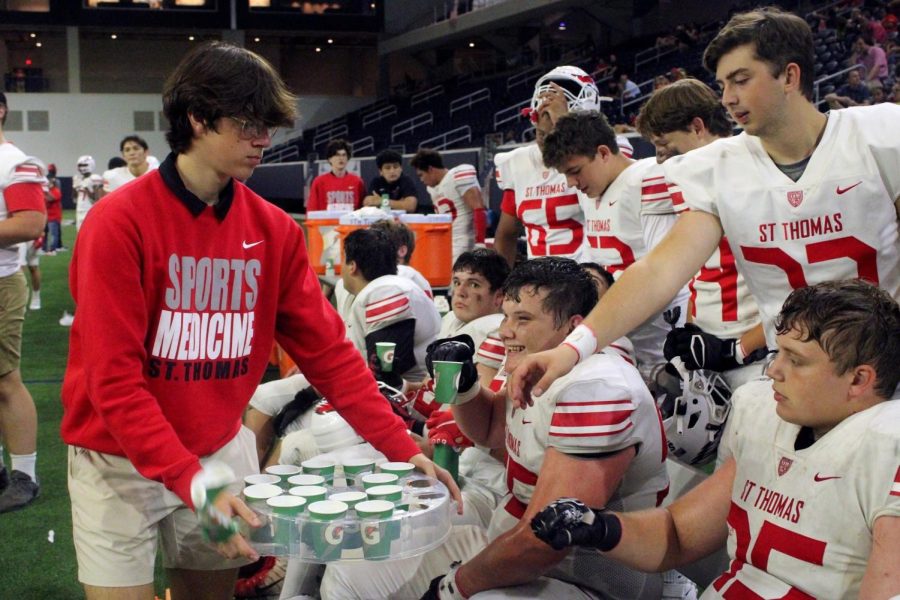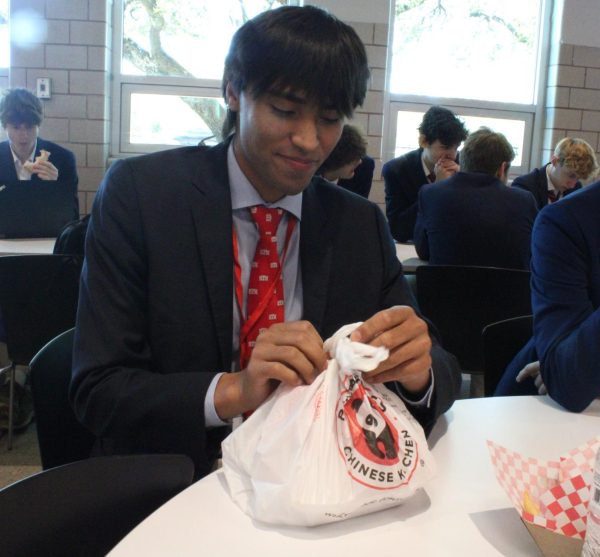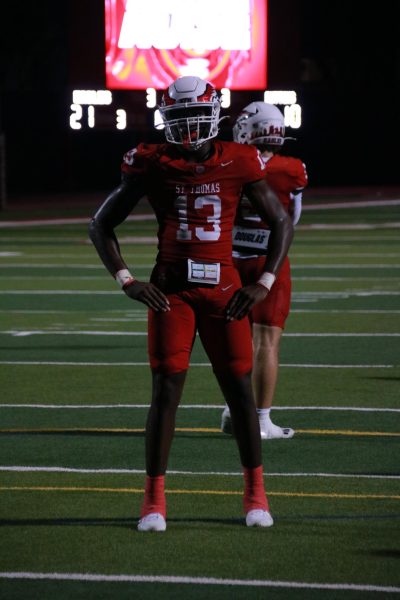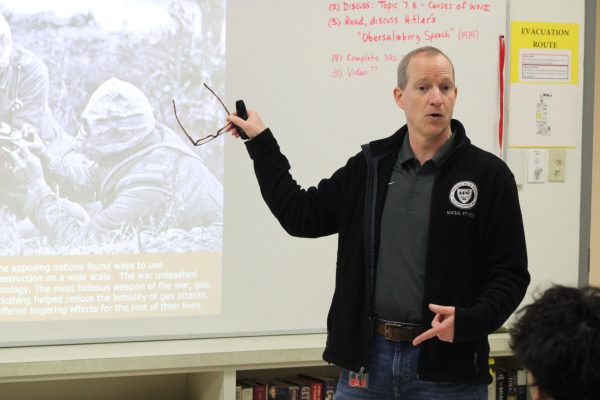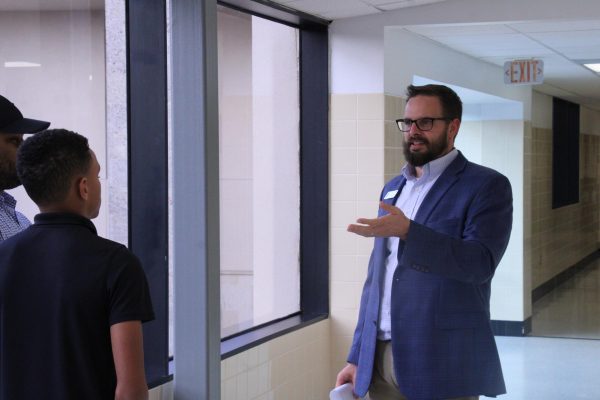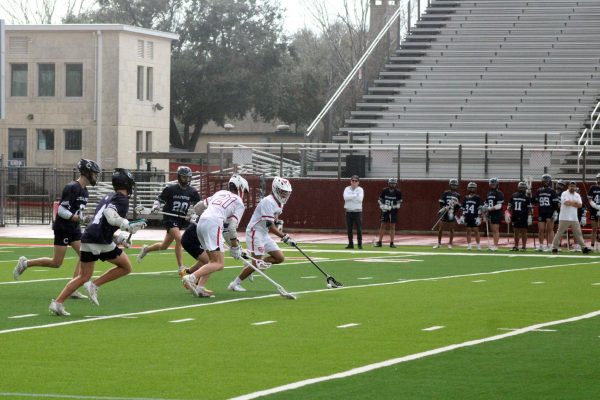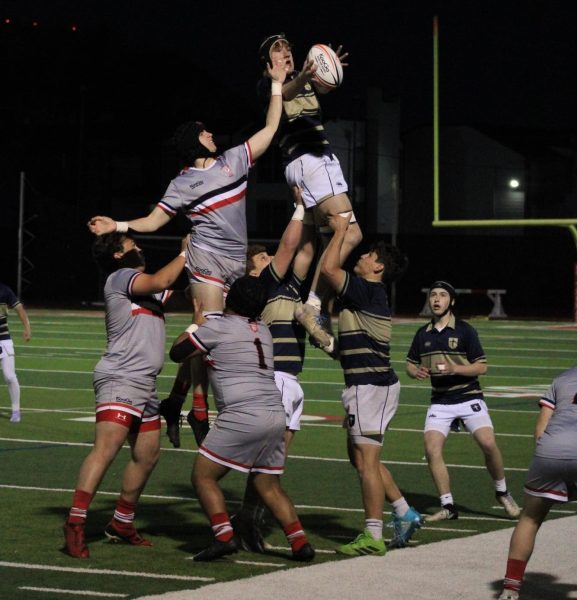Sports Medicine, the Heroes Behind our Successful Athletics
It’s the day before a crucial late season football game. As the last practice before the game winds down, the star wide receiver takes a brutal hit and lies on the ground unable to get up, seemingly out for the next day and maybe even the rest of the season. A demoralizing injury, the team heads into the game uncertain and anxious. But just before kickoff, the apparently injured wide receiver appears out of nowhere, immediately boosting morale and energetically leading them to a dramatic victory. But how did he recover from such a terrible injury so quickly? Well, it couldn’t have happened without the athletic trainers in the Sports Medicine department. These often overlooked heroes are the people who keep our athletes healthy and help them achieve peak performance.
The athletic trainers are most often seen on the sidelines during games and practices, usually treating and taping up hurt players, refilling the water bottles, or even fixing broken football helmets. Their mission everyday at every practice and every game is to prevent injuries, and this comes in many different forms. Chris Valdez, also affectionately known as “Doc”, leads the Sports Medicine department.
“We are tasked with preventing injuries as much as we can. But at the same time, we have to assess them and treat them and even rehab them once they happen. Everything from taping to water is all prevention of injuries.” Valdez said.
Sports Medicine isn’t just a part time hobby for these trainers either, many of them serve as trainers as a daily routine and are fully dedicated to keeping St. Thomas athletes healthy. Some of them don’t even attend St. Thomas and make the drive to Granger stadium everyday. Immediately after the dismissal bell rings, the trainers rush to the locker rooms to ready the equipment and go onto the field to start their day. On away game days, the trainers travel hundreds of miles, sometimes even out of state just to treat and help our athletes perform to the best of their ability.
Being a trainer is no easy task either, it requires concentration, dedication, and quick decision making.
“The hardest part of being in Sports Medicine is the amount of effort we put in compared to the amount of rewards we get. Another hard part is memorizing and knowing your stuff, so taping ankles, taping wrists, dealing with injuries, and working with a lot of the equipment we work with.” Maxwell Manning ‘25 said.
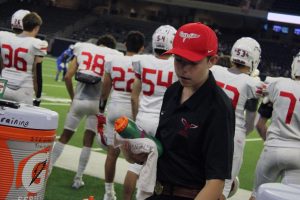
It seems that the benefits of being an athletic trainer are very minimal, there is no pay, not very much recognition, and it is a tiring day in and day out process. So why do the trainers insist on doing Sports Medicine?
“So mainly my favorite part about the Sports Medicine job is the amount of time I get to put into it, the amazing skills that I get to learn. And also being out there on the field with the team, being an important part of the team, and a cornerstone in an everyday game.” Manning said.
Others, such as experienced head student trainer Nicolas King ‘23, have been doing Sports Medicine jobs for many years.
“When I became a trainer, I was in 8th grade. My first day it took me 10 minutes to get out of the car, but after that I realized it wasn’t so bad. Now I’ve done it all 4 years of high school. Goes to show how such a small decision can change your life.” King said.
However, the best reward for doing Sports Medicine for many is watching the players succeed on the field.
“I think what I love most about my job is just watching the athletes compete and play. We have so many talented players here, we’ve had so many over the years, I still brag about them and talk about watching them on TV because they’re playing in the major leagues or in the NFL. So that kind of thing is exciting just to see somebody who put so much work, so much passion, into something to succeed and keep going at it. But even if high school is it, getting to see them compete and perform at a high level is the best thing for me, and I love watching them, it’s very satisfying for me.” Valdez said.
Without these dedicated, full time, trainers, our athletic departments and athletes wouldn’t be able to perform at the highest level or compete as they currently are. Players would be constantly dehydrated and injured, rehab times would be substantially longer, and the number of available athletes would dwindle. “Without the existence of Sports Medicine, it would be much harder for sports to operate.” King said.
The small Sports Medicine staff almost single handedly keeps our athletes and teams up and running. But many of these trainers already have other academic and personal commitments and while they enjoy Sports Medicine, it can put stress on their schedule sometimes. Which is why the Sports Medicine department is actively looking for new recruits wherever they can find them.
“Definitely go for joining Sports Medicine. Just try it, and even if you don’t like it, it’s good to take a shot and you should always try something new. Sports Medicine is very good, it is a good amount of work, and there are a lot of struggles you might have to overcome when first joining Sports Medicine. But if it’s something you enjoy, it’s a good career path, and it’s certainly good for team building, participation, and leadership skills.” Manning said.


